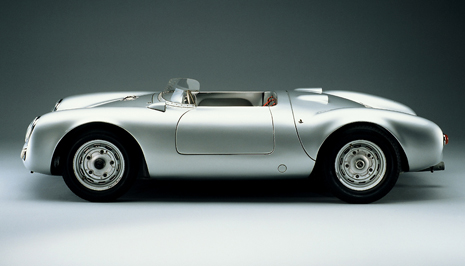
The Porsche 550 was a sports car produced by Porsche from 1953-1956 and featured an aluminium cylinder head
During the 1940s to 1960s Porsche produced some of its most iconic sports cars including the Porsche 550 Spider, Carrera 904 and Carrera 356. Although these cars are beautiful to look at, current owners may experience a problem in driving them.
The reason being that special parts like cylinder heads are no longer available. If damage does occur the only solution is through customised parts reconstruction or reverse engineering.
However, with help from Voxeljet, a provider of high-speed, large-format 3D printers, it turned out that 3D printing offered a viable and cheaper option.
The biggest challenge in reconstructing complex components such as the aluminium cylinder head is that the original drawings are often no longer available. So, in this particular case, which involved the reconstruction of a Carrera cylinder head, the process started with measuring and scanning.

Geometric reconstruction of the cylinder head in 3D
Valve guides, seat rings, camshaft bearing, intake and exhaust ducts, cylinder head screws etc. had to be set up as 3D base bodies in a meticulous detailed process.
The next step was the transfer to superordinate functional models and the adding of design features from casting technology like site measuring, bevels and fillets.

Core package
Following the geometric reconstruction by German company CAD Support, the production of the sand cores was next. The entire core package with its eleven cores was 3D printed at the Voxeljet service centre in Friedberg, Germany.
Using the voxeljet printer, it was possible to outline the thin-walled cooling rib measuring 2 mm without additional supporting structure in the inner and outer cores.

Raw part with gating system
The moulding was undertaken by the foundry Rauleder & Rudolf based in Schwäbisch Gmünd, which used a hot isostatic pressing (HIP) treatment. This resulted in a huge improvement of the mechanical properties, as well as a reduction of pores.
Following the completion of the components on a 5-axis machining centre the aluminium cylinder head was ready for assembly.

The finished cylinder head






